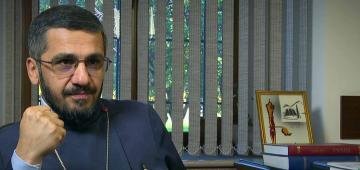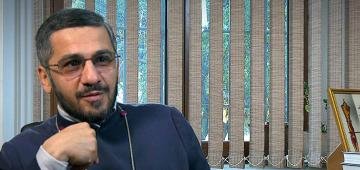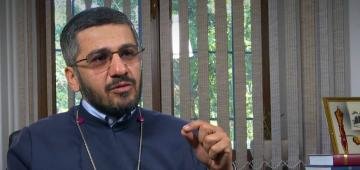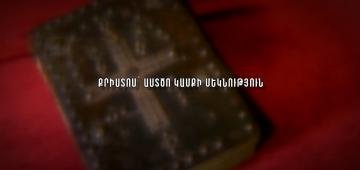 |
The Event of the Cross: A WatershedWhy is Jesus considered a sign of opposition, according to the elder Simeon, if he came into the world to establish peace and reconciliation? Commented by Archimandrite Ruben Zargaryan. |
 |
Crisis: The Lord's PrescriptionJesus, predicting the destruction of the Temple of Jerusalem and the catastrophic events taking place in the last days, what message does he convey to his followers to withstand crises? Commented by Archimandrite Ruben Zargaryan. |
 |
Generational responsibility"The fathers ate sour grapes and their sons' teeth were set on edge." How can the sins and irresponsibility of one generation affect the next generations? Archimandrite Ruben Zargaryan comments. |
 |
Justice, not slanderWhy does a person who does not see his own faults and shortcomings constantly speak ill of others? Archimandrite Ruben Zargaryan comments. |
 |
Justice, not slanderWhy does a person who does not see his own faults and shortcomings constantly speak ill of others? Archimandrite Ruben Zargaryan comments. |
 |
Libido vivendi, libido possidendi, libido dominantiWhat are the three driving forces that man is called to moderate, to humanize? What example does Christ set during his trial? |
 |
Authority and responsibilityWhat does the Bible say about the divine principle of authority? Commentary by Rev. Ruben Zargaryan. |
 |
Donation: a manifestation of love or a desecration of the body?What is the body from the perspective of Christian doctrine? Father Archimandrite Ruben Zargaryan comments. |
 |
The cross is the foundation of lifeThe cross is in full bloom in our churches because life flows from love, truth, and justice. Our fathers, when they depicted the cross, expressed their perception. The path of life is the path of love. Is the cross a content or a form in our life? Archimandrite Ruben Vardapet Zargaryan comments. |
 |
The way to truth and lifeHow does Christ become our path and our companion on that same path? Father Ruben Vardapet Zargaryan comments. |
 |
Hope is a giftWhat role can hope play in the life of a Christian, why is it considered a gift along with love and faith, why do we constantly ask the Lord to increase our hope, faith, and love? Father Ruben Vardapet Zargaryan comments. |
 |
The Interpretation of God's WillWhat is the central place of the word of God in the church, especially in its ritual, preaching, and theological life? Archimandrite Ruben Zargaryan comments. |